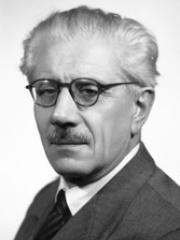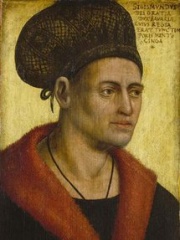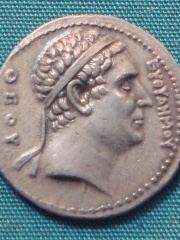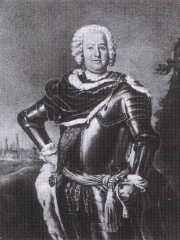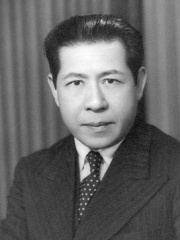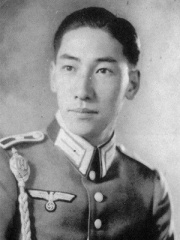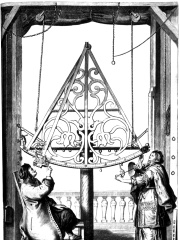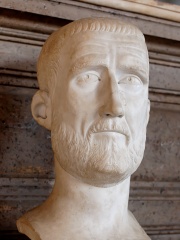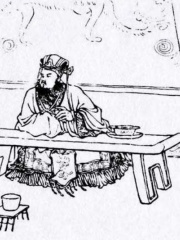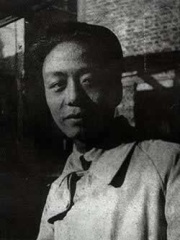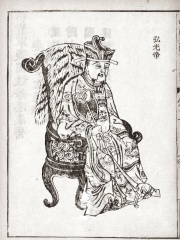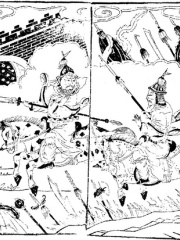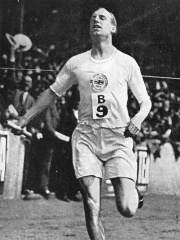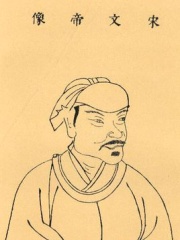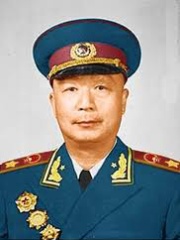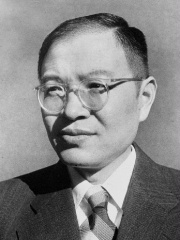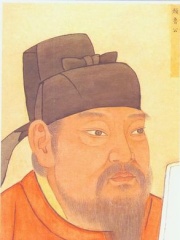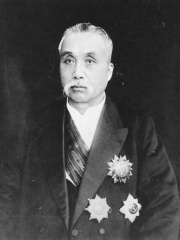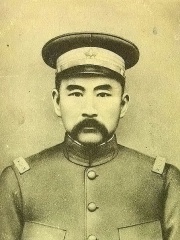Politico
Jia Chong
217 - 282

 Jia Chong
Jia Chong
La sua biografia è disponibile in 15 lingue su Wikipedia. Jia Chong è il 8593° politico più popolare (in calo dal 7436° nel 2024), la 581ª biografia più popolare della Cina (in calo dal 550ª nel 2019) e il 322° politico più popolare della Cina.
Memorability Metrics
Page views of Jia Chong by language
Among Politicos
Among politicos, Jia Chong ranks 8,593 out of 19,576. Before him are Ferruccio Parri, Sigismund, Duke of Bavaria, Euthydemus I, Agesilaus I, Shō Hashi, and Ankhwennefer. After him are Leopold II, Prince of Anhalt-Dessau, Hastings Ismay, 1st Baron Ismay, Chen Gongbo, Chiang Wei-kuo, Elisabeth Hevelius, and Vitaliy Masol.
Most Popular Politicos in Wikipedia
Go to all RankingsFerruccio Parri
1890 - 1981
HPI: 62.63
Rank: 8,591
Sigismund, Duke of Bavaria
1439 - 1501
HPI: 62.63
Rank: 8,592
Euthydemus I
300 BC - 260 BC
HPI: 62.63
Rank: 8,593
Agesilaus I
HPI: 62.63
Rank: 8,594
Shō Hashi
1371 - 1439
HPI: 62.63
Rank: 8,595
Ankhwennefer
300 BC - 200 BC
HPI: 62.63
Rank: 8,596
Jia Chong
217 - 282
HPI: 62.63
Rank: 8,597
Leopold II, Prince of Anhalt-Dessau
1700 - 1751
HPI: 62.63
Rank: 8,598
Hastings Ismay, 1st Baron Ismay
1887 - 1965
HPI: 62.63
Rank: 8,599
Chen Gongbo
1892 - 1946
HPI: 62.63
Rank: 8,600
Chiang Wei-kuo
1916 - 1997
HPI: 62.62
Rank: 8,601
Elisabeth Hevelius
1647 - 1693
HPI: 62.62
Rank: 8,602
Vitaliy Masol
1928 - 2018
HPI: 62.62
Rank: 8,603
Contemporaries
Among people born in 217, Jia Chong ranks 1. Among people deceased in 282, Jia Chong ranks 2. Before him is Probus. After him is Pope Maximus of Alexandria.
Others Born in 217
Go to all RankingsOthers Deceased in 282
Go to all RankingsProbus
POLITICIAN
232 - 282
HPI: 80.76
Rank: 1
Jia Chong
POLITICIAN
217 - 282
HPI: 62.63
Rank: 2
Pope Maximus of Alexandria
RELIGIOUS FIGURE
250 - 282
HPI: 59.73
Rank: 3
In Cina
Among people born in Cina, Jia Chong ranks 581 out of NaN. Before him are Helü of Wu (-550), Ai Qing (1910), Zhu Yousong (1607), Li Jue (200), Eric Liddell (1902), and Wang Huning (1955). After him are Chen Gongbo (1892), Wang Zhengjun (-71), Emperor Wen of Liu Song (407), Nie Rongzhen (1899), Zhang Wentian (1900), and Yan Zhenqing (709).
Others born in Cina
Go to all RankingsHelü of Wu
POLITICIAN
550 BC - 496 BC
HPI: 62.70
Rank: 575
Ai Qing
WRITER
1910 - 1996
HPI: 62.67
Rank: 576
Zhu Yousong
POLITICIAN
1607 - 1646
HPI: 62.66
Rank: 577
Li Jue
POLITICIAN
200 - Present
HPI: 62.66
Rank: 578
Eric Liddell
ATHLETE
1902 - 1945
HPI: 62.65
Rank: 579
Wang Huning
POLITICIAN
1955 - Present
HPI: 62.64
Rank: 580
Jia Chong
POLITICIAN
217 - 282
HPI: 62.63
Rank: 581
Chen Gongbo
POLITICIAN
1892 - 1946
HPI: 62.63
Rank: 582
Wang Zhengjun
POLITICIAN
71 BC - 13
HPI: 62.58
Rank: 583
Emperor Wen of Liu Song
POLITICIAN
407 - 453
HPI: 62.58
Rank: 584
Nie Rongzhen
POLITICIAN
1899 - 1992
HPI: 62.57
Rank: 585
Zhang Wentian
POLITICIAN
1900 - 1976
HPI: 62.56
Rank: 586
Yan Zhenqing
POLITICIAN
709 - 785
HPI: 62.52
Rank: 587
Among Politicos In Cina
Among politicos born in Cina, Jia Chong ranks 322. Before him are Xu Shichang (1855), Zhang Xun (1854), Helü of Wu (-550), Zhu Yousong (1607), Li Jue (200), and Wang Huning (1955). After him are Chen Gongbo (1892), Wang Zhengjun (-71), Emperor Wen of Liu Song (407), Nie Rongzhen (1899), Zhang Wentian (1900), and Yan Zhenqing (709).
Xu Shichang
1855 - 1939
HPI: 62.82
Rank: 316
Zhang Xun
1854 - 1923
HPI: 62.77
Rank: 317
Helü of Wu
550 BC - 496 BC
HPI: 62.70
Rank: 318
Zhu Yousong
1607 - 1646
HPI: 62.66
Rank: 319
Li Jue
200 - Present
HPI: 62.66
Rank: 320
Wang Huning
1955 - Present
HPI: 62.64
Rank: 321
Jia Chong
217 - 282
HPI: 62.63
Rank: 322
Chen Gongbo
1892 - 1946
HPI: 62.63
Rank: 323
Wang Zhengjun
71 BC - 13
HPI: 62.58
Rank: 324
Emperor Wen of Liu Song
407 - 453
HPI: 62.58
Rank: 325
Nie Rongzhen
1899 - 1992
HPI: 62.57
Rank: 326
Zhang Wentian
1900 - 1976
HPI: 62.56
Rank: 327
Yan Zhenqing
709 - 785
HPI: 62.52
Rank: 328
